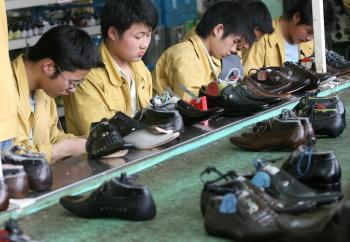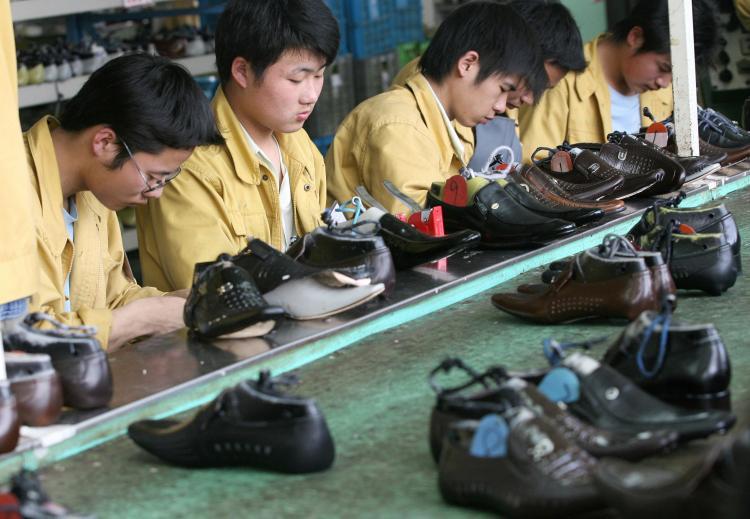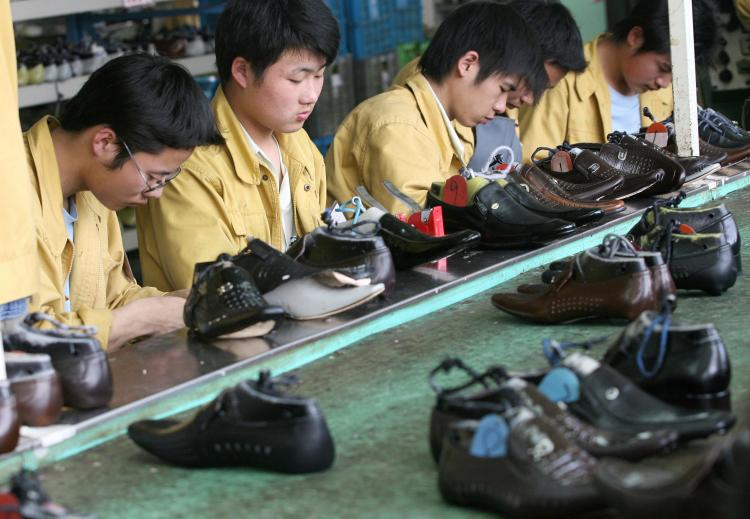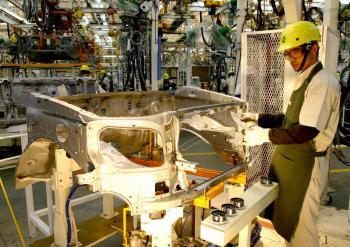In the wake of the financial crisis, followed by the incidents of poisonous toys and tainted powered milk, the export orders of many Chinese factories have decreased dramatically, pushing manufacturers in Wenzhou into crisis.
Since the late 1970s, private enterprises have been established one after another in Wenzhou, with tens of thousands of farmers becoming entrepreneurs. Non-governmental loans gave rise to Wenzhou’s economic development. With abundant capital and local residents’ considerable traits of teamwork and perseverance, entrepreneurs in Wenzhou have become outstanding in the ranks of Chinese capitalists.
Wenzhou is the primary manufacturing center in China, where some 300,000 manufacturing companies, which comprise 34 industrial manufacturing groups, are based. Wenzhou produces 10 to 20 percent of China’s garments and footwear, 70 percent of its razor blades, locks and glasses, and 90 percent of its cigarette lighters. In addition, Wenzhou plays an important role in the manufacture of low-voltage electrical appliances, automobile and motorcycle parts and components, as well as pottery and ceramic items.
According to recent local media reports, some 20 percent of the three million migrant workers employed by the manufacturing companies in Wenzhou have been laid off.
The China Economic Net confirmed that 20 percent of the 300,000 factories in Wenzhou’s 34 major manufacturing groups have shut down partially or completely, and 40,000 of those enterprises have gone bankrupt.
The U.K Independent reported that the number of orders a manufacturer of glasses received from overseas dropped from 200 last year to 18 this year. Therefore, that enterprise had no choice but to shift its business focus from overseas markets to domestic markets to compensate for the weak overseas demand.
Regardless of what state-run media have been reporting, local newspapers are full of ads of plants and warehouses for sale or rent. Upon calling many of those enterprises, what one may hear is nothing more than “good location, complete facilities; everything is ready and the price is negotiable.”
Shuitou Township in Wenzhou’s Pingyang County was once dubbed “the city of leather.” At one time, it produced 120 million pieces of leather per day, accounting for a quarter of the leather made in China. However, most of the factories there are shut down at present. According to the Wenzhou Small and Medium-size Enterprise Development Promotion Association, about 60,000 manufacturers there have shut down partially or completely, and at least 40,000 of these businesses have gone bankrupt.
A prime example of what has been occurring in Wenzhou is the Xinou Footwear Company, which was the first shoe manufacturer established in the Wenzhou Economic and Technological Development Zone. Their annual sales revenue was nearly 20 million yuan ($3 million), and their products were exported to Eastern Europe and France. In its heyday, the company was hiring about 700 to 800 employees, and it was quite famous in that industry. However, the operator, Shi Jianou, suddenly disappeared in late November 2007. The factory has since shut down, and its employees were forced to take leaves and move out of the company’s quarters as soon as possible.
According to as yet incomplete data of the Wenzhou Municipal Statistics Bureau, more than 1,000 companies have moved out of Wenzhou, including those which moved out in groups. More and more enterprises are expected to move overseas. For instance, Hashan Footwear Company has moved to Nigeria, and a large number of businesses are said to have moved to Vietnam, Thailand and other Southeast Asian countries, which have lower labor costs.
Economic Crisis in China’s Primary Manufacturing Center
Wenzhou is the primary manufacturing center in China, where some 300,000 manufacturing companies, which comprise 34 industrial manufacturing groups, are based.

Factory workers check shoes for flaws on a production line at the Kangnai shoe factory in the Chinese city of Wenzhou. Mark Ralston/AFP/Getty Images
|Updated:




